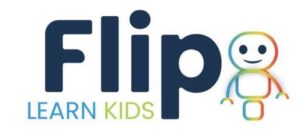Dive Brief:
- Students’ data literacy is showing signs of decline since the pandemic, with 8th graders showing a 10-point drop on National Assessment of Educational Progress scores in data analysis, statistics and probability between 2019 and 2022, according to a new analysis of test scores by the Data Science 4 Everyone coalition. Scores for fourth graders declined by 4 points in the same period.
- These falling scores indicate 4th graders now have the data literacy skills of 3rd graders from a decade ago, and today’s 8th graders have the data literacy skills of 6th graders from a decade ago.
- Large racial gaps in data literacy scores also widened during the pandemic, the coalition said. Most recently, Black 4th graders scored 28 points lower than their White peers in the content area, while Black 8th graders scored 34 points lower than their White peers.
Dive Insight:
Data literacy took one of the hardest hits in NAEP test score data compared to other math subjects, the coalition said.
It appeared in 2019 that data-driven courses like statistics and probability were gaining traction, with 25% of 12th graders saying they took such a course in middle or high school. But it looks like that momentum may have slowed during the pandemic.
This steady downward trend may be due in part to a decline in teachers instructing data-related courses. Between 2019 and 2022, the portion of 4th grade math teachers who said they put a “moderate” or “heavy” emphasis on data analysis dipped 5 percentage points, from 81% to 76%, according to the Data Science 4 Everyone coalition.
High school students taking AP tests have meanwhile shown more interest in humanities courses than in math and science, according to a 2022 analysis of course credits and AP data from the U.S. Department of Education and College Board. Students took 2,008,352 AP humanities exams in 2020, while 1,034,255 took AP tests in behavioral and social science, 788,149 in natural science, 769,366 in math and computer science, and 79,218 in art, according to data from the American Academy of Arts and Sciences.
When schools hone in on data literacy skills, they set students up for more career and postsecondary opportunities, said Zarek Drozda, director of Data Science 4 Everyone and the study author, in a statement.
“The ability to interpret, understand, and work with data is central to so many aspects of our lives and careers today. Data literacy is a must-have for every employee, every business owner, and every participant in our democracy,” said Drozda.
To improve students’ data literacy outcomes, the study suggests teachers relate data science classes and content more to math instruction. Connecting data literacy to other subjects like social studies or English, as well as creating data-related career and technical education course options, can help improve students’ data literacy skills, too, the report said.






Leave a Reply